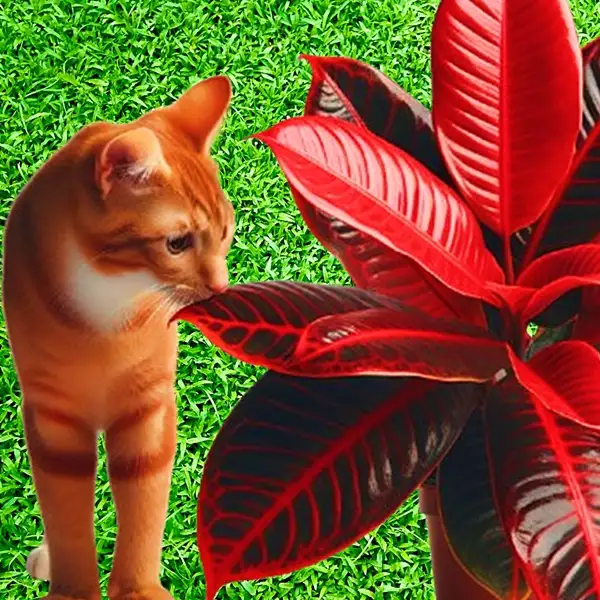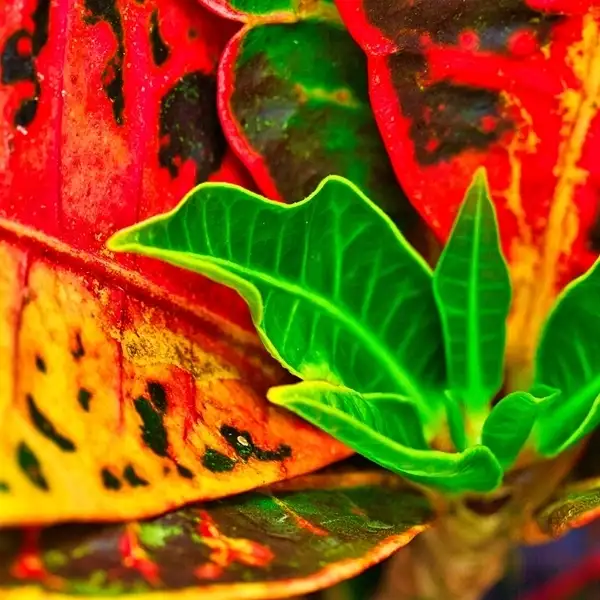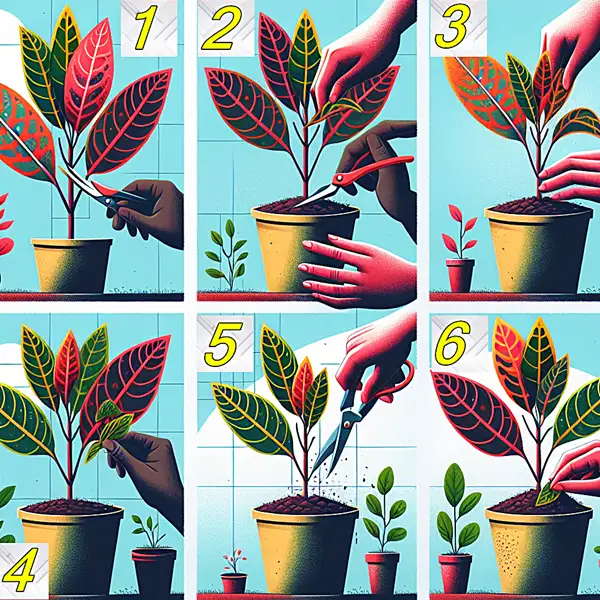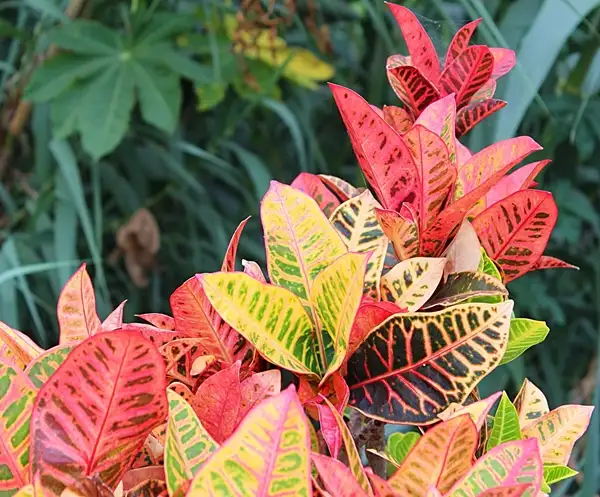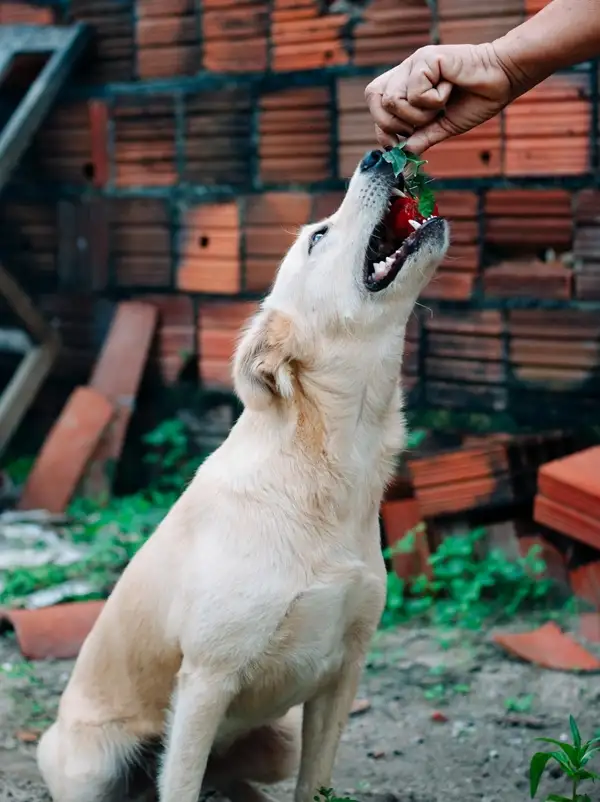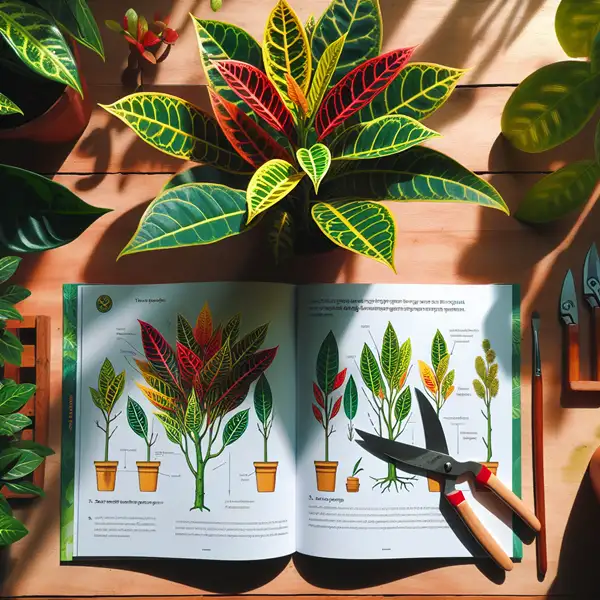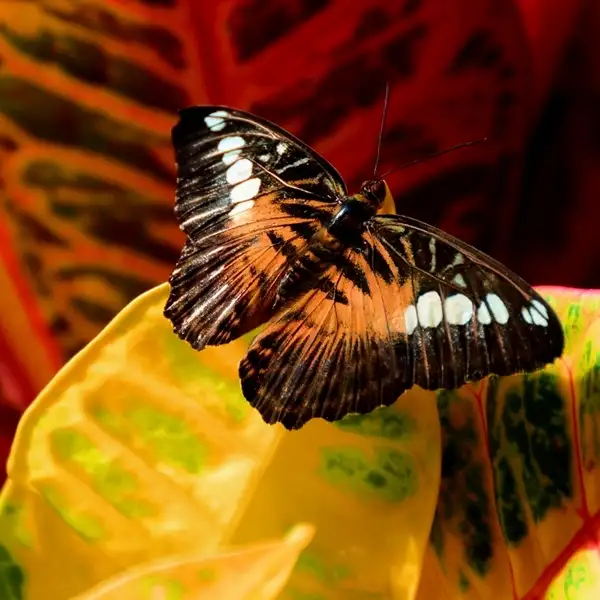Key Takeaways
| Key Takeaways | Why It Matters |
|---|---|
| Understanding Croton Plants | Discover the fascinating yet lesser-known aspects of croton plants. |
| Cat-Croton Interaction | Learn why cats are naturally drawn to houseplants and what it means. |
| Toxicity Facts/Are Croton plants poisonous to cats? | Find out the truth about croton plants and their hidden dangers for pets. |
| Symptoms of Poisoning | Recognize the subtle and alarming signs that indicate possible poisoning. |
| Emergency Actions | Understand the vital steps to protect your pet in case of an incident. |
| Safe Alternatives | Explore beautiful, pet-friendly plants that ensure a safe environment. |
| Proactive Pet Care | Why choosing the right plants is essential for your cat’s well-being. |
Let’s Understand Croton Plants First
Before bringing any houseplant indoors with pets, it’s crucial to do thorough research. Croton plants being a popular choice often raise a question – Are crotons toxic to cats?
The eye-catching coloration of crotons is a result of low-light environments, this causes their leaves to change hue as they mature. Interestingly enough though, keeping them requires some effort as these tropical plants prefer high humidity & indirect sunlight conditions. Despite this is true for most croton species or varieties whether it’s Mammy Croton (curled leaf), Petra Croton (colored veins), or Zanzibar Croton (thin leaves).
Still, besides the beauty they bring into homes’ indoors, it makes many forget about one important aspect – toxicity. Like many other members of the Euphorbiaceae family such as Dieffenbachia species (commonly known as Dumb Cane), Pencil Cactus, or Crown-of-thorns plants which are known for high levels of irritating substances contained inside them, Croton has quite the same case.
Relationship Between Cats and Houseplants
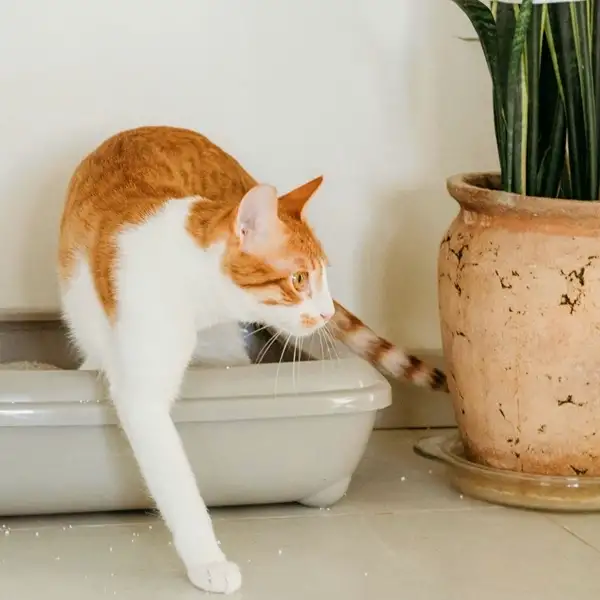
Cats are inherently curious creatures with a penchant for exploring anything new around their environment. Their curiosity often extends towards household flora too which may not always be ideal depending on what type of plant you own.
In reality, indoor cats often lead much more sedate lives than their outdoor counterparts do. Therefore interacting with houseplants can provide stimulation that keeps them occupied & helps prevent boredom-related behaviors such as misusing furniture or scratching posts that may appear elsewhere in your household. After all, your fur baby might fancy itself a botanist!
8 Symptoms of Plant Poisoning in Cats
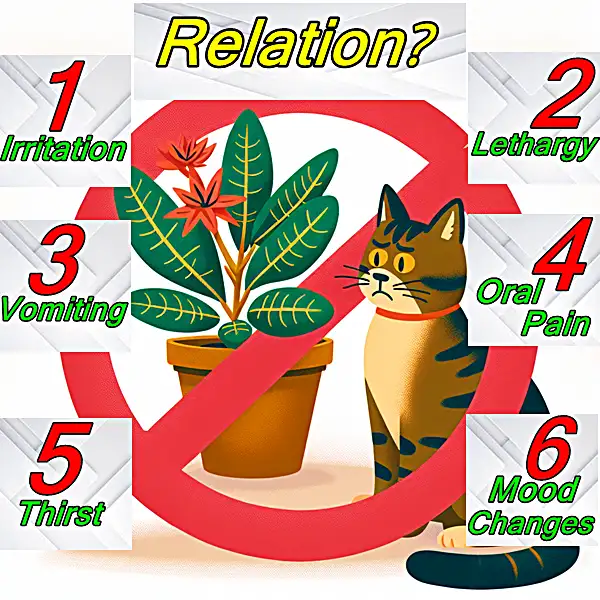
It’s essential for cat owners who have houseplants, including crotons, at home, to be aware of symptoms associated with poisoning. Cat lovers should look out for signs such as:
| Symptom | Description |
|---|---|
| Drooling | Excessive saliva production, often due to oral irritation. |
| Vomiting | Expulsion of stomach contents, indicating gastrointestinal distress. |
| Diarrhea | Frequent, loose, or watery stools. |
| Lethargy | Unusual tiredness or lack of energy. |
| Loss of Appetite | Reduced interest in eating or complete refusal of food. |
| Difficulty Swallowing | Signs of discomfort or hesitation when eating or drinking. |
| Oral Irritation | Pawing at the mouth, swelling, or visible redness. |
| Seizures | Uncontrolled muscle contractions; in severe poisoning cases. |
6 Essential Steps to Handle Plant Poisoning in Cats
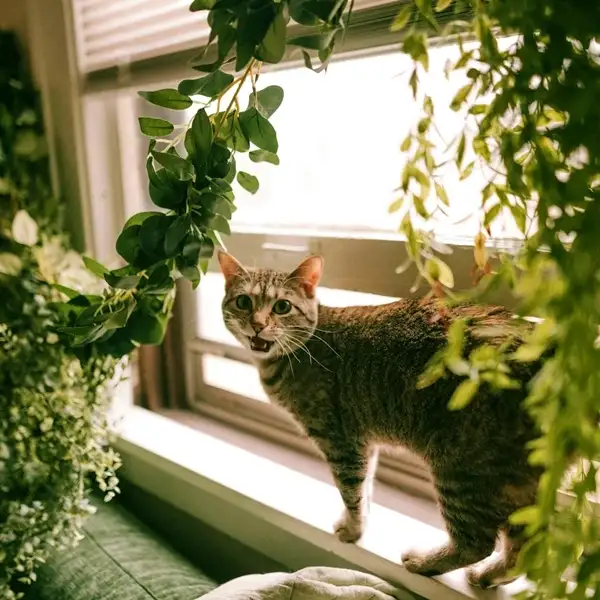
Once it is established that your cat was indeed exposed to dangerous flora species, don’t panic. Acting swiftly and calmly is crucial in saving its life.
| Step | Action |
|---|---|
| 1️⃣ | Remove Access: Immediately take the plant away to prevent further ingestion. |
| 2️⃣ | Check Your Cat: Look for the symptoms mentioned above. |
| 3️⃣ | Contact a Veterinarian: Call your vet or an emergency clinic for guidance. |
| 4️⃣ | Provide Plant Information: Identify the plant ingested to assist in treatment. |
| 5️⃣ | Follow Professional Advice: Administer treatments as directed by the vet. |
| 6️⃣ | Prevent Future Incidents: Remove toxic plants from your home to ensure safety. |
5 Safe Alternatives to Croton Plants
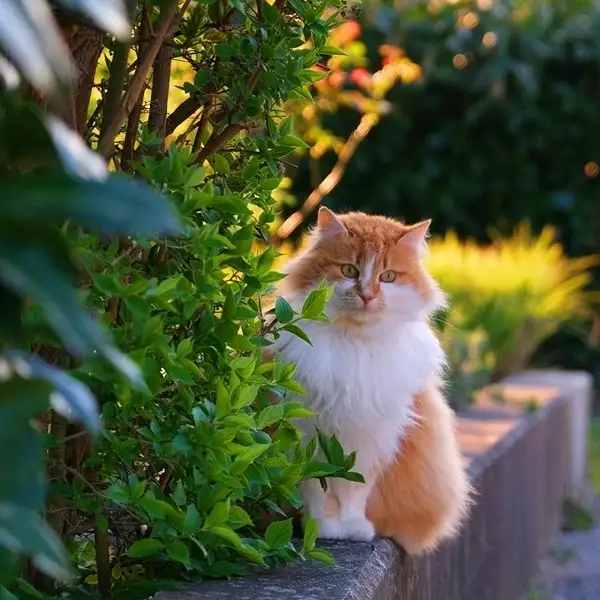
Let’s see some pet-friendly indoor plants.
| Plant | Benefits |
|---|---|
| Spider Plant (Chlorophytum comosum) | Easy to care, Air-purifying qualities |
| Boston Fern (Nephrolepis exaltata) | Non-toxic, Thrives in indirect light |
| Parlor Palm (Chamaedorea elegans) | Pet-friendly, Adds a tropical touch to interiors |
| Money Tree (Pachira aquatica) | Believed to attract good fortune, Safe for cats |
| Areca Palm (Dypsis lutescens) | Graceful fronds that are safe for pets |
Most Important Thing To Do
We should always do some research before taking a new houseplant in our homes so that our pets are safe with them.
This may often be an overlooked aspect of pet ownership but ultimately the devil’s in the details. And because you love them, why take the chance?
Frequently Asked Questions
Is croton seed poisonous?
Yes! Croton seeds are poisonous to cats. They contain toxic substances that can cause adverse reactions. Keep croton plants & their seeds out of reach.
What plant can cats chew on?
Cats can safely chew on spider plants, cat grass & catnip. These plants provide enrichment & are non-toxic.
Is croton gold dust safe for cats?
No, croton Gold Dust is toxic to cats. Its sap contains harmful calcium oxalate crystals. Keep all croton varieties away from pets.
How poisonous are crotons?
Crotons are moderately poisonous to cats. If eaten, they can cause mouth irritation, drooling, vomiting & in severe cases, seizures.


